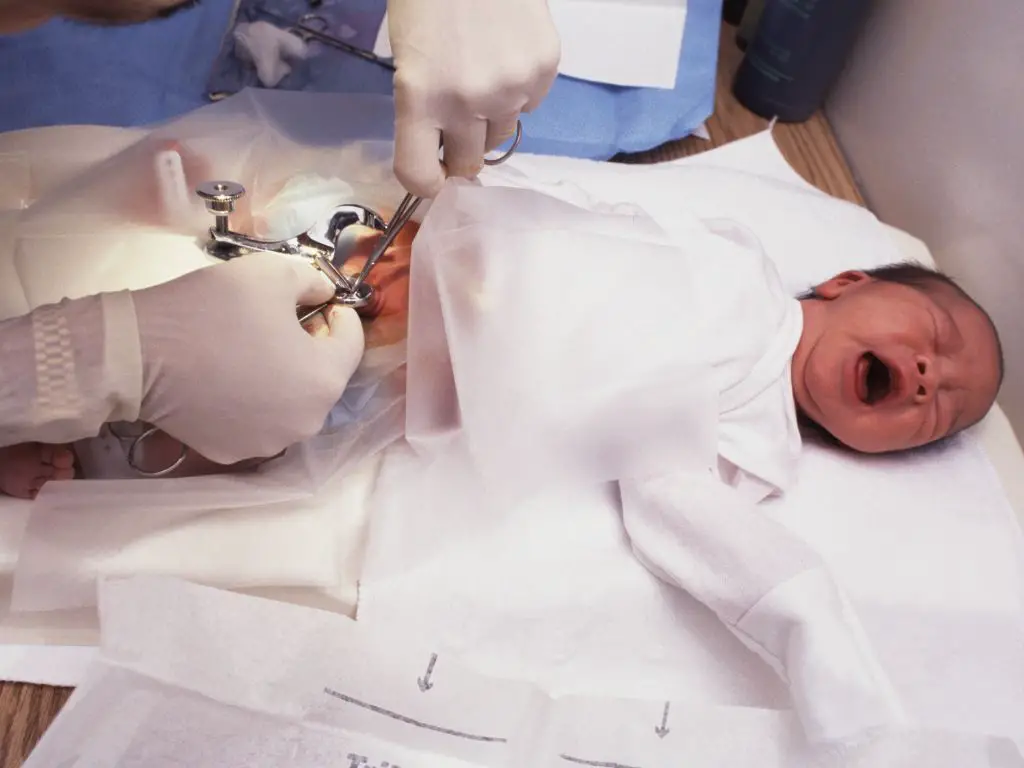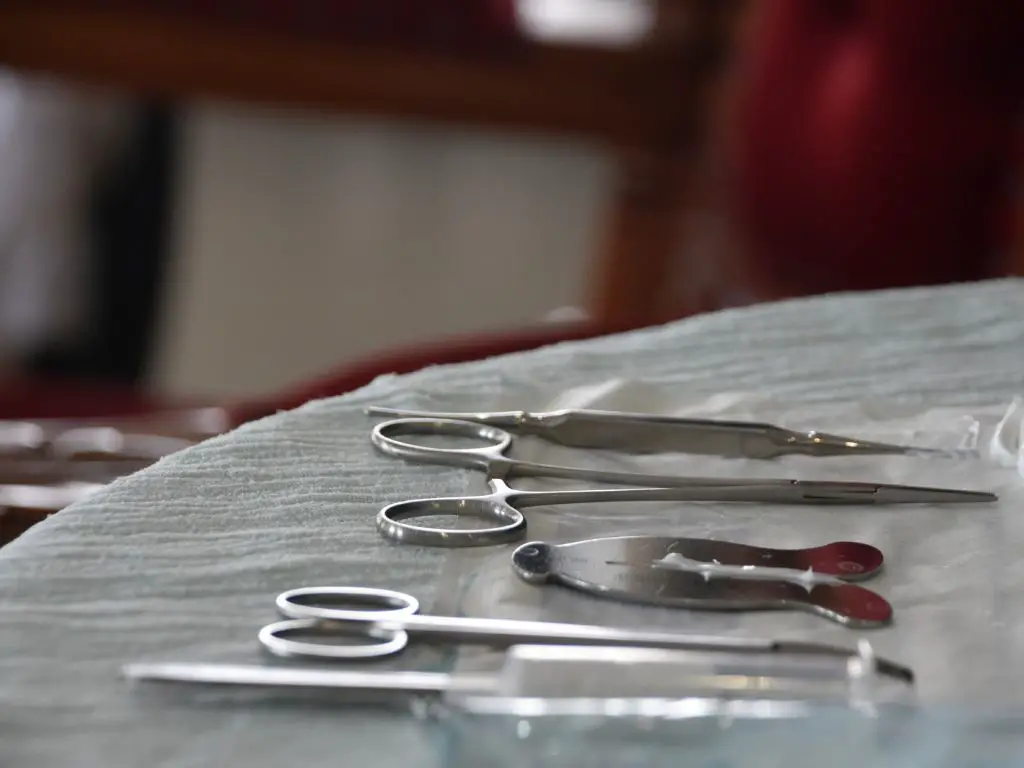Circumcision is a procedure that has been practiced for centuries, and it is still widely used today. It involves the removal of the foreskin from the penis, which can be done for medical or cultural reasons. There are many benefits to circumcision that make it a good choice for some people.
Why circumcision is good
There are several health benefits associated with being circumcised including better hygiene practices along with decreased risk factors related STDs & Penile Cancer. This procedure is a beneficial option to be considered by individuals looking forward to improve their overall wellbeing without any major complications.

Improved hygiene
The primary benefit of circumcision is improved hygiene. When an uncircumcised penis becomes infected with bacteria or other organisms, proper cleaning may not always be possible due to difficulty in reaching all areas under the foreskin. By removing this area completely during circumcision, infections and irritation become much less likely since there’s no longer anything to trap dirt and bacteria against skin surfaces where they can multiply rapidly leading to infection or inflammation . Furthermore, circumcised men have lower rates of urinary tract infections than those who remain uncircumcised.
Reduced risk of STDs
Another advantage of having a circumcised penis is reduced risk of sexually transmitted diseases (STDs). Studies have shown that men who are circumcised tend to contract fewer STDs than their uncircumcised counterparts. Lack of foreskin makes it more difficult for viruses such as HIV/AIDS, HPV, herpes simplex virus type 2 (HSV-2) etc,to enter into body through sexual contact.
Reduced risk of penile cancer
Additionally, male circumcisions also reduce chances getting penile cancer significantly as compared with noncircumsized males over lifetime period.
By reducing these risks associated with sexual activity helps protect both partners involved in intercourse making them healthier overall.
Why circumcision is good for babies

Circumcision can be beneficial to newborn babies. The practice of circumcision helps reduce the risk of infections, improves hygiene, and reduces cancer risks in later life. As such, it is important to consider why circumcision may be good for babies.
First off, research suggests that circumcised males are less likely to suffer from urinary tract infections (UTIs). UTIs occur when bacteria enters the urethra or bladder through an uncircumcised penis; this can cause pain and discomfort as well as more serious health issues if left untreated. Circumcision removes some foreskin which eliminates any potential entry points for bacteria into these areas thus reducing this risk significantly.
Furthermore, studies have found that circumcising your baby also reduces their chances of developing sexually transmitted diseases (STDs) in adulthood due to increased hygiene associated with being circumcised compared with not being circumcised at all or partially so only certain parts remain covered by foreskin tissue .
Finally , there is evidence suggesting a lower rate of penile cancer among those who are circumcised compared with those who are not – although rare – penile cancer could potentially lead to disfigurement or even death if left unchecked. This means circumcision provides an additional layer protection against one type on potentially deadly form on cancers which otherwise would go undetected until it was too late.
While there may still be debate surrounding the merits over whether parents should choose circumcise their child, its clear from current scientific evidence that doing so offers numerous benefits both now during infancy but also later down line throughout adulthood .
🔬 Subscribe to SciMail
Get the latest science discoveries straight to your inbox!
Best age for circumcision surgery

There are many opinions on the best age to perform circumcision surgery, it is generally accepted that the optimal time frame for this procedure falls between birth and adolescence.
At birth, circumcision can be performed with minimal trauma since babies lack nerve endings in their genital area. This makes them less sensitive to pain during the operation than older children or adults would be if they were circumcised at an older age.
Additionally, newborns have immature immune systems which makes them more resistant to infection from any potential complications of surgery such as bleeding or scarring compared to those who undergo circumcision later in life when their immune systems are fully developed.
By contrast, adolescent males may experience more psychological distress associated with undergoing a surgical procedure due to increased levels of self-awareness during puberty and beyond; therefore performing circumcision at this stage could cause significant emotional stress rather than physical discomfort as experienced by infants being circumcised shortly after birth .
Furthermore, adolescents may require additional follow up visits for postoperative care which adds further cost burden on families seeking medical attention. Therefore, while there will always be some debate surrounding what constitutes the ‘best’ age range for circumcisions, it seems clear that performing these surgeries soon after childbirth offers several advantages over waiting until adolescence .
Disadvantages of circumcision

There are some potential disadvantages associated with circumcision that should not be overlooked.
First, the risks associated with any surgical procedure can never be fully eliminated. Circumcision involves cutting through skin and tissue which carries inherent risks such as infection or excessive bleeding during or after the surgery. Furthermore, circumcision may cause scarring in rare cases which could lead to physical discomfort later on in life due to reduced elasticity of the skin around the penis area as well as decreased sensitivity during sexual activities due to nerve damage caused by surgery.
Second, while it is true that circumcised males have lower rates of urinary tract infections compared to uncircumcised males; this benefit does not necessarily outweigh other possible negative effects such as psychological trauma from having had a part of their body removed without consent at an early age before they are able make informed decisions about their own bodies themselves.
Finally , although circumcision may reduce risk factors for certain sexually transmitted diseases (STDs), abstinence remains one hundred percent effective against STDs regardless if one has been circumcised or not. Therefore, parents should carefully weigh all pros and cons prior making any decision regarding their child’s health when considering whether or not circumcise them since no single answer fits every individual case.
What is your take on this, will you consider to circumcise your baby or not. Share your thoughts in the comments below.


Leave a Reply